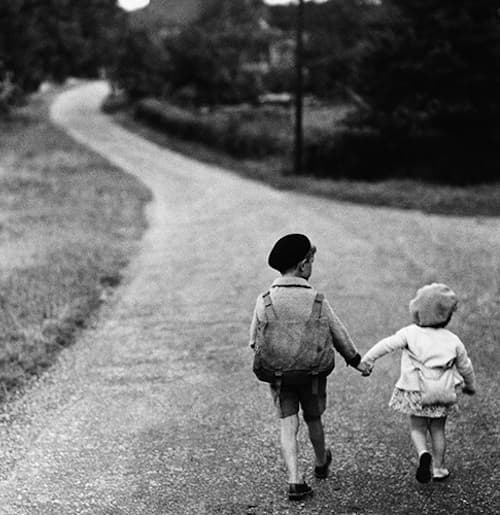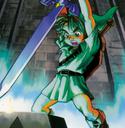Edith Stein,
Essays on Woman, Second Edition
(Trans. by Freda Mary Oben [Washington, DC: ICS Publications, 1996]).
Our world is going through a crisis of dehumanization, breakup of family life, a general loss of moral values. Needed as healing is the spiritual formation of the person stressed by Edith Stein. Her educational insights are more important now than ever. There is no better coverage than hers available concerning human sexuality, personal formation, and the relationship between persons and that of persons to God (vii).
So begins the translator’s preface of this selection of papers given by Edith Stein on the theme of woman that makes up the fifth volume in the authorized edition of The Works of Edith Stein. For Stein, the question of the genuine nature of the feminine is a deep and abiding concern that is always related to the question of education. There are three areas of concern which come into relief in the Essays: the nature and vocation of woman, education of women and the educator as witness.
Nature & Vocation of Woman
“Woman’s nature is determined by her original vocation of spouse and mother. One depends on the other” (132). This corresponds to the deepest longing of a woman’s heart which “is to give herself lovingly, to belong to another, and to possess this other completely. This longing is revealed in her outlook, personal and all-embracing, which appears to us as specifically feminine” (53). The archetype of woman is of course found in the Virgin Mary says Stein: “every woman who wants to fulfill her destiny must look to Mary as ideal” (119). Any defect in a woman’s nature is rooted in a perverted relationship to God. This is why over and over again, Stein emphasizes the importance of a true anthropology rooted in a woman’s capacity for God because “this need is based on woman’s nature itself” (16).
To understand nature, Stein offers an analysis of the accounts of creation in Genesis, noting that there the difference between male and female is immediately proclaimed; and therefore, the nature of man and woman is manifested through their differences. While Stein strongly believes that man and woman have different natures, they are both mutually given a threefold vocation: to be the image of God, to be fruitful and multiply, and to be masters of the earth. It is the vocation of every Christian to belong to God in love and service of Him. Christ embodies human perfection: in Him all are one. Despite the distinction between the natures of women and men, the more Christ-like a person becomes, the more “we see in holy men a womanly tenderness and a truly maternal solicitude for the souls entrusted to them”. Whilst “in holy women there is manly boldness, proficiency, and determination” (84). For both women and men, humble submission to the God-given order through imitation of Christ is the surest path to the development of the original human vocation. The distinction of the sexes is what makes the grace of unity possible, a grace expressed in the transcendence over natural limitations.
Education of Women
As a result, Stein understands education to include at its core the development of the human being as a woman or a man, and this in view of the total humanity of Christ and Mary. It follows then that “the dissimilarity of the sexes must be emphasized in order that the feminine nature be freely developed and properly formed”(166-167). Whilst men and women share some universally human characteristics, they have separate and distinct natures.Stein says this in full view of the tendency, already at work in her time, to think in terms of a “struggle between sexes, one pitted against the other, as they fight for their rights . . . [where they] no longer appear to hear the voices of nature and of God” (76).
Earnestly aware that this struggle is the direct fruit of original sin, Stein proposes as the antidote to this reduced understanding of human sexuality the person of Mary. She it is who educates women, not through moralism, but through “her battle against the serpent . . . fulfilled by the victory over evil won for all humanity” (78). It is this victory which recovers an adequate anthropology for us. Education develops the humanity of a man or a woman: it calls us to the total humanity of Christ and Mary. Human sexuality is the sign by which men and women participate in the imago Dei through the ongoing exchange of gift that expresses their nature, rooted in the distinct vocations of woman and man.
Reading Edith Stein’s emphatic call for women to find their own femininity in the likeness of Mary, I personally feel myself to be no more than a pale shadow in comparison with the Immaculata—and frankly, more dominated by my inheritance from Eve. Yet Stein indicates to women like myself a sure path to the discipleship of Christ through His Mother: “The life of an authentic Catholic woman is also a liturgical life”. It is through the liturgical life that God transforms his people, enabling them to participate in divine life (57). A Eucharistic life reminds woman that “her being and becoming and acting in time is ordered from eternity, has a meaning for eternity, and only becomes clear” when looked at in this light (88). Through the witness of Mary, woman realizes that she is not doomed to the inheritance of Eve, but to that of Mary’s Son. Stein confirms that in the very contours of her nature, which is turned toward God, woman’s being is already from, and is always destined for, the Eternal.
The most delightful pages of this collection of essays must surely be the treatment of the soul of woman (89-94). “Since it is through poetry that the soul is most adequately described,” Stein analyzes types of women taken from literary works. She draws on the women of Sigrid Undset’s Olaf Audenssohn, Henrik Ibsen’s A Doll’s House, and Goethe’s Iphigenie. All these female characters “share one common characteristic: a longing to give love and to receive love, and in this respect a yearning to be raised above a narrow, day-to-day existence into the realm of a higher being” (93). Stein is unambiguous that a woman’s life beyond the apparent banality of family life, where it also includes a professional life, does not violate the order of nature and grace: for a woman does not receive her identity from what she does but from something prior to this. The order of nature and grace is her inheritance, and is therefore ever present, informing a woman’s being. The totality of a woman’s life thus has the possibility to serve that “redeeming love which is her true destiny” (94).
Thus for Stein, going beyond the sphere of the family does not violate the order of nature and grace in a woman’s life. “A common creativity in all areas was assigned in the original order . . . and wherever the circle of domestic duties is too narrow for the wife to attain the full formation of her powers, both nature and reason concur that she reach out beyond this circle” (79-80). For both man and woman, the relationship between professional and family life should respond to and reflect the divine order. Both the husband and the wife should take care that professional life does not cut them off from the life of their family and home. However, according to Stein, women have a keener sense of the proper order of professional and domestic obligations because for woman, “the soul’s union with the body is naturally more intimately linked” (95):
Woman’s soul is present and lives more intensely in all parts of the body, and it is inwardly affected by that which happens to the body; whereas in men, the body has more pronouncedly the character of an instrument which serves them in their work and which is accompanied by a certain detachment (95).
Motherhood expresses this unity of body and soul, of family life and the order of nature and grace, most aptly because in woman a new creature can be formed, taking life within her very body. This “represents such an intimate unity of the physical and spiritual that one is well able to understand that this unity imposes itself on the entire nature of woman” (95). Woman can therefore never not be a woman, given all that her nature and vocation implies.
The Educator as Witness
For Stein, the educator “must never forget that, above all, the primary and most essential Educator is not the human being but God Himself (107). As a result, given the educator’s witness of life lived in relationship with Christ, “children in school . . . do not need merely what we have but rather what we are” (6). The method of a true education depends on this witness: “The most effective educational method is not the word of instruction but the living example without which all words remain useless” (6). Only a witness has the capacity to break through the encrustation of the human heart. Life lived according to one’s nature in the embrace of the Church is more fulfilling than any human reductiveness or doubt about the greatness of God’s call to existence. A life lived according to this nature and vocation incarnates the Truth that has loved man and woman into existence in the first place.
Finally, Stein notes that “for women to be shaped in accordance with their authentic nature and destiny, they must be educated by authentic women” (107). As spouse and mother, women are called to live an awareness that others have been entrusted to them as gifts, towards whom they have a holy duty to give witness to the beauty of the feminine nature. This precious resource is reborn in every generation, something for which all women, in concert with Edith Stein, can utter a heartfelt Magnificat.
Paige S. Sanchez completed a Master of Theological Studies degree at the Pontifical John Paul II Institute for Studies on Marriage and Family in Washington, DC. She is currently the Associate Superintendent for Mission Effectiveness in the Catholic Schools Office of the Archdiocese of New York.



